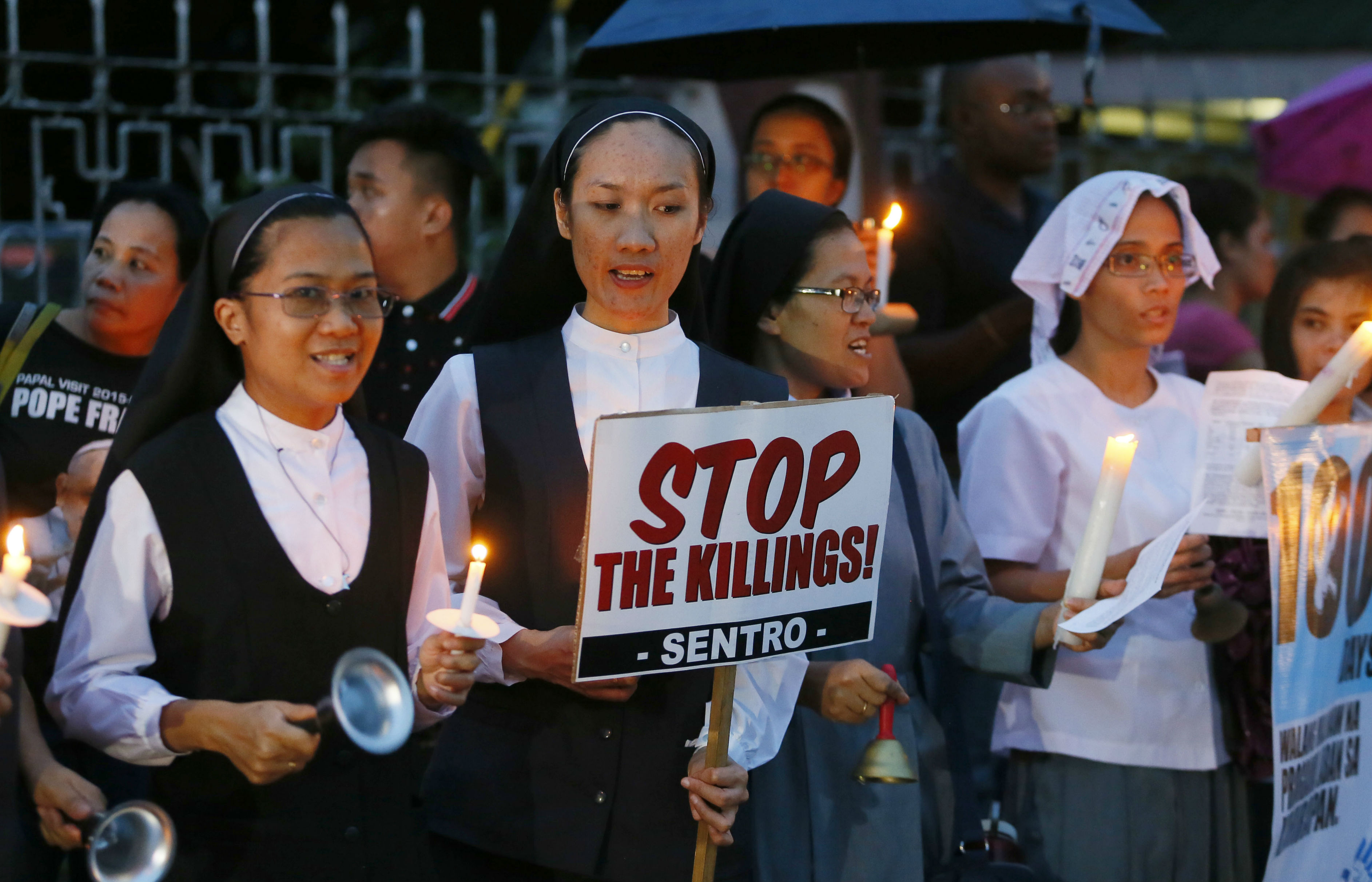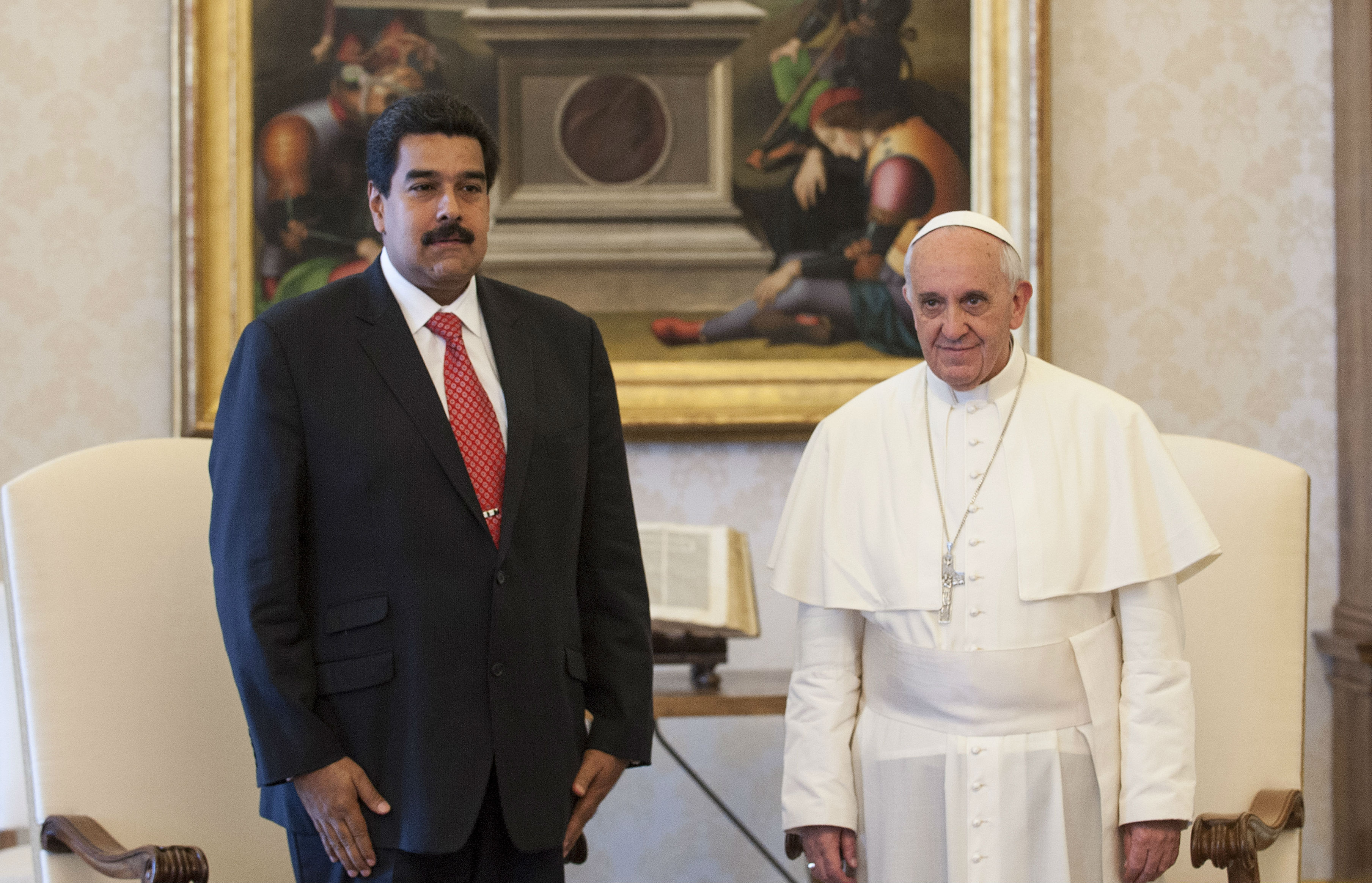The Venezuelan President has held talks with the Pope in a bid by the Latin American pontiff to help mediate in the country’s mounting political crisis.
On Monday evening Francis urged President Nicolás Maduro to embark on what the Vatican described as a “path of sincere and constructive dialogue” in order to “alleviate the suffering of the people” and offer a vision for the country’s future.
Despite vast oil wealth, Venezuelans are struggling with food shortages and soaring prices: this has led to political instability with opposition to Leftist President Maduro trying to unseat him.
Opposition leaders had denounced the 20 October court decision to suspend the plebiscite vote on President Nicolas Maduro that they had campaigned for. But after meeting representatives from both sides, the Vatican’s envoy to Argentina, Emil Paul Tscherrig, said that “a national dialogue” had already started and that formal talks between the Government and opposition leaders would begin on 30 October at Isla Margarita. The head of the opposition coalition, Jesus Torrealba, who met Mr Tscherrig, said while talks were important, “it can’t continue to be a strategy for the Government to win time.”
The Argentinian Pope, who has significant political clout in South America, had been asked to intervene following appeals from South America’s European Union equivalent and from former presidents of Spain, Panama and the Dominican Republic.
His intervention in Venezuela comes after he encouraged peace talks in Colombia between the Government and Leftist rebels and helped the United States and Cuba re-establish diplomatic relations.
Such is Francis’ influence in Latin and Central America that during the Paris climate change talks he reportedly telephoned the President of Nicaragua urging him to accept the new carbon reduction deal.
Meanwhile Venezuelan cardinal-designate in Merida, Baltazar Porras Cardozo, has said the Church is in contact with both the Government and opposition leaders as it seeks to promote a dialogue between the two sides.
"We're not mediators, we're facilitators," he told Catholic News Service. "There's a tendency to stereotype the [bishops'] conference as being against the Government and in favour of the opposition. But that's a misreading," he said, adding that the conference has always been in favour of upholding the constitution and finding a peaceful solution to the crisis.
The 72-year-old told CNS that he plans to serve the Church with joy, hope and fraternity, following Pope Francis' lead. "This obliges us to be true missionaries, to be a Church that gets out and works even harder for the poor and the deprived in our society, in the name and in the following of Jesus, his Gospel and teachings, and following the path that Pope Francis has created with courage and joy", he said.
"It is one of many signs that Pope Francis has given us about his closeness to and concern for the situation in Venezuela,'' he added. "He has expressed the need for dialogue and for a peaceful solution to the crisis in which we are living."
Pope Francis announced in early October that the Merida archbishop would be one of 17 new cardinals consecrated at the Vatican in November.




 Loading ...
Loading ...